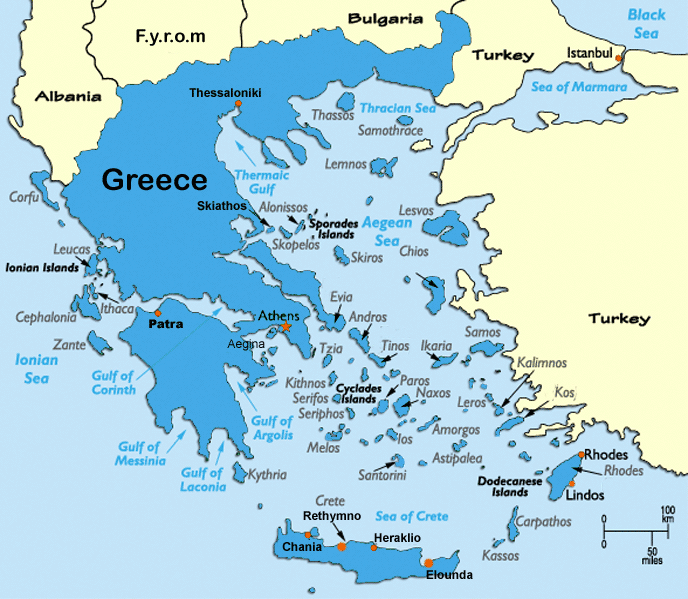
The
Economist newspaper has come to the conclusion that European monetary union is in trouble; hoist on its own internal contradictions. They see the stark choices for Europe as either full on federalism with an accompanying loss of national sovereignty or dissolution of the euro, with attendant chaos. They then attempt to offer a third way that will not work because it fails to solve the key contradictions. This matters to America because chaos in Europe will deeply affect our economy and some of the lessons have direct applicability to our situation. From the
leader: One road leads to the full break-up of the euro, with all its economic and political repercussions. The other involves an unprecedented transfer of wealth across Europe’s borders and, in return, a corresponding surrender of sovereignty. Separate or superstate: those seem to be the alternatives now.
Why is this so? The currency union presupposes a single market; with one currency and goods and services flowing freely in response to the signals of the free market; just like in the United States. But this has not been achieved in Europe. Labor markets in Europe do not function like those in America. First, labor is not really free to flow across borders in Europe. Language creates barriers, as do habits of peoples used to living in their native land. More importantly, in many countries, and especially Greece, large sections of the economy are under state control. Employees are state workers, further restricting labor flows. Finally, national labor unions in Europe have lobbied national governments for restrictions on labor, in the way of required benefits, minimum wages and rules about firing employees and these rules differ significantly by nation.
Beyond the lack of an integrated labor market, some sovereign governments, by dint of their huge share of the economy, form a barrier to economic integration. The solution was supposed to be that member countries had limits on debt as a share of GDP. The Greeks cheated on this, but it was never realistic to believe that politicians could keep this promise over the objections of disgruntled electorates during a severe recession.
The Economist's proposal doesn't really address the core issues. It admits to a purely technocratic solution. They propose European central regulation of banking, to prevent banks from being pressured by national governments to by sovereign debt and to institute a European wide system of deposit insurance. Second, they argue for a limited effort to mutualise deb of all euro-zone economies above 60% of GDP. I don't really understand this latter plan, but I don't have to, because it won't be implemented. It is a sop to the reckless that the Germans will never accept, IMHO. They argue that this is not a step to full scale federalism. That's not the point anyway.
The move to European regulation of the banks is actually the move to federalism. As the banks are regulated by centrally, but lend locally, the local conditions will become the next target for central European regulators. If union demands make it unprofitable for banks to do any lending in Greece, for example; the logical next step is for central regulators to step in and change those conditions. Banking is so central to capitalism that central control leads inevitably to federalism. To the extent that countries continue on the path to socialism in Europe, their economies will be not be viable.
What would work? The only way that European monetary union would work would be to limit national sovereignty by preventing socialist and Peronist-style intervention in free markets. It is the size of the state sector, and uneven workplace flexibility, including restrictions on wages, that prevents a single market. Unless the EU is willing to guarantee a minimum level of market freedom, including a ban on state participation in the economy, then monetary union won't work.
For the U.S., I foresee a rocky road ahead, because European turmoil will affect our economy directly through the banking system and indirectly through trade. The U.S. already has a federalism with a largely flexible labor market, so most of the issues in the EU lack direct relevance to our situation. The biggest question is what happens if California or Illinois can't run their governments with the revenues they take in. Short of the employees taking serious pay cuts, I don't see any way out of the messes for those states. Greek state workers have already suffered this fate.
To paraphrase Abraham Lincoln, I believe this union cannot endure, permanently half socialist and half free.










